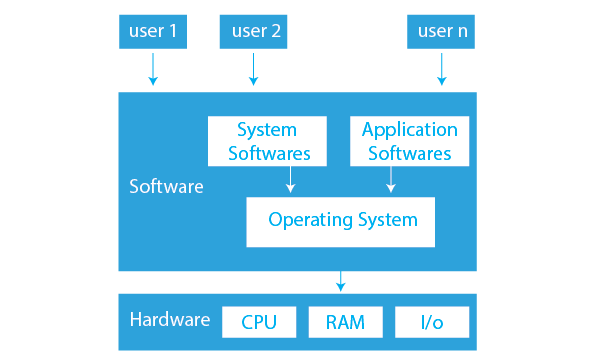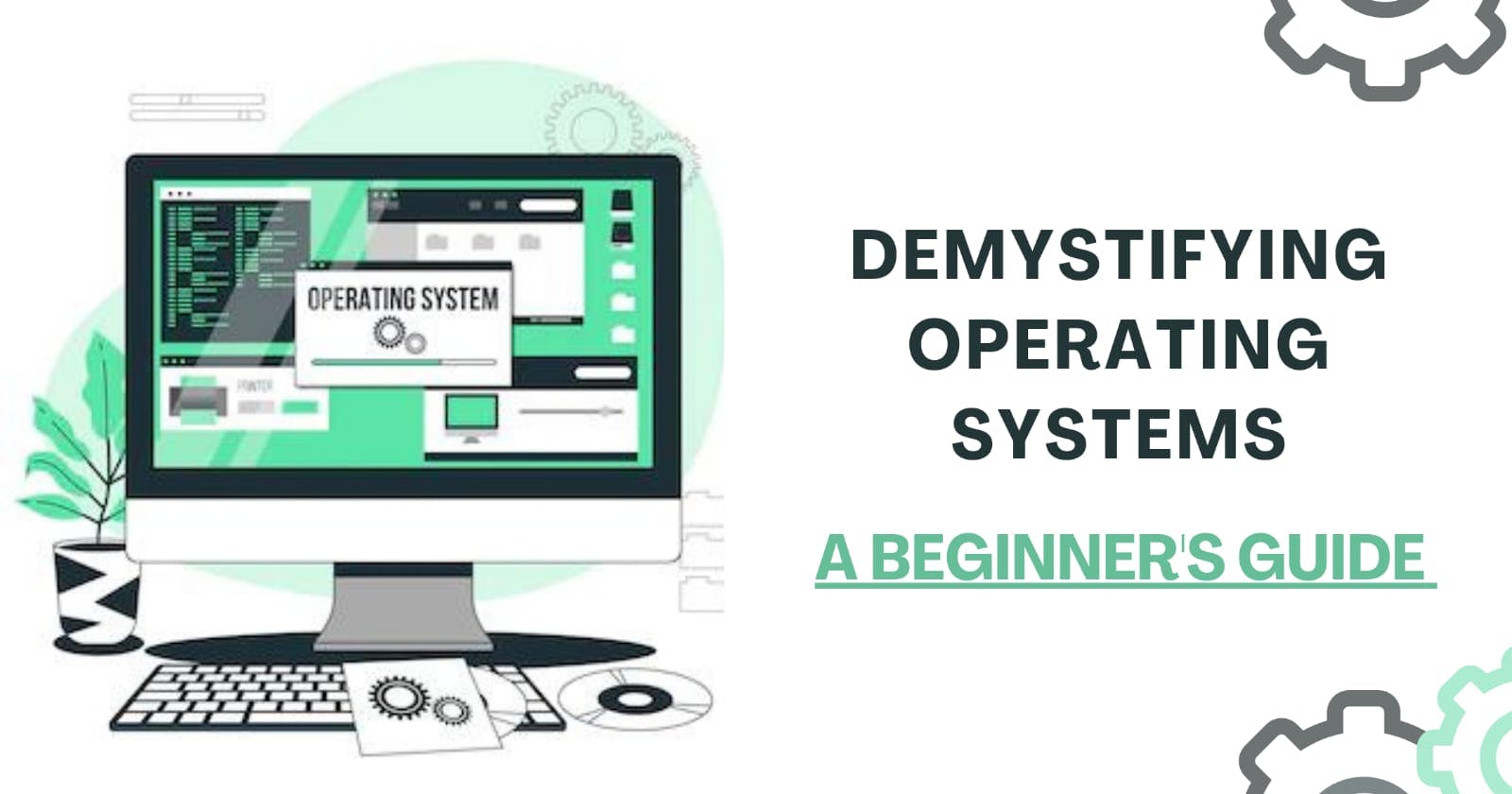Demystifying Operating Systems: A Beginner's Guide
Unraveling the Fundamentals of Operating Systems
Imagine a magical conductor that orchestrates every activity in a big playground. That's what an Operating System (OS) does for your computer! In this blog, we'll explore what Operating Systems are all about. We'll learn how they help your computer work smoothly and manage everything, like a wise superhero! From their different functions to the various types, get ready to uncover the secrets of these fascinating OS wonders! 🚀📚
Ever wondered how your computer knows what to do when you click on an app, open a file, or connect to the internet? That's all thanks to the Operating System! 🖱️It's the invisible hero working behind the scenes, making sure your computer runs like a well-oiled machine. Whether it's storing files, keeping viruses at bay, or even letting you switch between multiple tasks effortlessly, the OS has your back!
Operating System
Imagine your computer as a magical kingdom with many different parts, like the screen, keyboard, and mouse. But to make all these parts work together and do what you want, it needs a smart conductor, just like in a band. That's where the Operating System (OS) comes in!

The OS is like the conductor who talks to each part of your computer and tells them what to do. It's special software that helps you talk to your computer and tells the computer how to listen to you. Without the OS, your computer wouldn't know how to show you pictures or play games.
So, the OS is like a bridge between you and your computer. It helps you do fun things on your computer and makes sure everything runs smoothly. It's a superhero that makes your computer work like magic!
Functions of the Operating System
An Operating System makes using computers easy and convenient for us. Without it, we'd have to write separate programs for each hardware part. But thanks to the OS, we don't need to worry about that! It handles everything for us and provides helpful functions like:
Resource Management
Resource Management plays a crucial role in optimising the use of computer resources. Think of it as a traffic controller that ensures different programmes get fair access to the CPU, memory, and other resources. For instance, when you're multitasking and running several applications simultaneously, Resource Management ensures that each app gets its required share of resources to function efficiently. It's like making sure all the guests at a party get enough food, so no one goes hungry! If multiple users are accessing the same computer resources, then the OS must again ensure they can work simultaneously.
Example: When you're editing a video while listening to music and running a software update in the background, Resource Management allocates the right amount of CPU power and memory to each task, so your computer runs smoothly without freezing or slowing down.
Process Management
Process Management oversees the execution of various tasks or processes on your computer. It acts like an air traffic controller, ensuring each programme takes off and lands without any conflicts. When you have multiple processes running simultaneously, Process Management schedules and prioritizes them, so your computer operates seamlessly.
Example: Imagine your computer as a busy airport. Process Management ensures that the takeoff and landing of planes are well organized, avoiding any collisions or delays. This way, all your applications run efficiently, and you can switch between tasks effortlessly.
Storage Management
Storage Management is like an organised librarian that maintains and organizes your computer's data storage. It ensures that data is stored efficiently and can be retrieved quickly when needed. Just like a well-organized library, it prevents clutter and helps you find files easily.
Example: When you save your documents, pictures, and videos on your computer, Storage Management stores them in appropriate folders, making it convenient for you to locate and access them later.
Memory Management
Memory Management is the memory superhero of your computer. It efficiently manages your computer's RAM (Random Access Memory) and helps applications use memory resources optimally. Just like your brain remembers information, Memory Management ensures your computer recalls data quickly and efficiently.
Example: When you run a memory-intensive application like a high-definition video game, Memory Management allocates the required memory space, allowing the game to run smoothly without crashes or slowdowns.
Security and Privacy
system from malicious attacks and safeguard your personal information. Just like your home has locks and security systems, Security and Privacy defend your computer from unauthorised access and ensure your data remains confidential.
Example: When you connect to a public Wi-Fi network, Security and Privacy act as a shield, preventing potential hackers from accessing your sensitive information, such as passwords or financial data. They keep your computer safe and secure in the digital world.
With these essential functions, the Operating System ensures your computer operates efficiently, stays secure, and provides you with a smooth computing experience for all your tasks and activities.
Note: Operating Systems work primarily through system calls. When users issue commands to applications, these applications, in turn, invoke system calls to request services from the Operating System. These system calls act as intermediaries, directing software and hardware resources to perform their respective tasks efficiently. Interestingly, system calls can also be made directly without the need for a graphical user interface (GUI). In Windows, this can be done through the Command Prompt, while in Linux, it can be achieved using the Terminal. This direct interaction with system calls provides users with a more hands-on and technical approach to interacting with the Operating System.

Conclusion
In conclusion, the Operating System is the unseen hero that enables our computers to perform their incredible feats seamlessly.
Resource Management ensures equitable distribution of resources, making multitasking a breeze, even with multiple users accessing the same computer. Process Management ensures the harmonious execution of tasks, ensuring that your applications run smoothly without interference. Storage Management maintains order in your digital library, keeping your files organised and readily accessible.
Memory Management serves as your computer's memory superhero, optimising RAM usage to ensure quick data retrieval. And lastly, Security and Privacy stand as vigilant guardians, protecting your system and sensitive information from potential threats.
